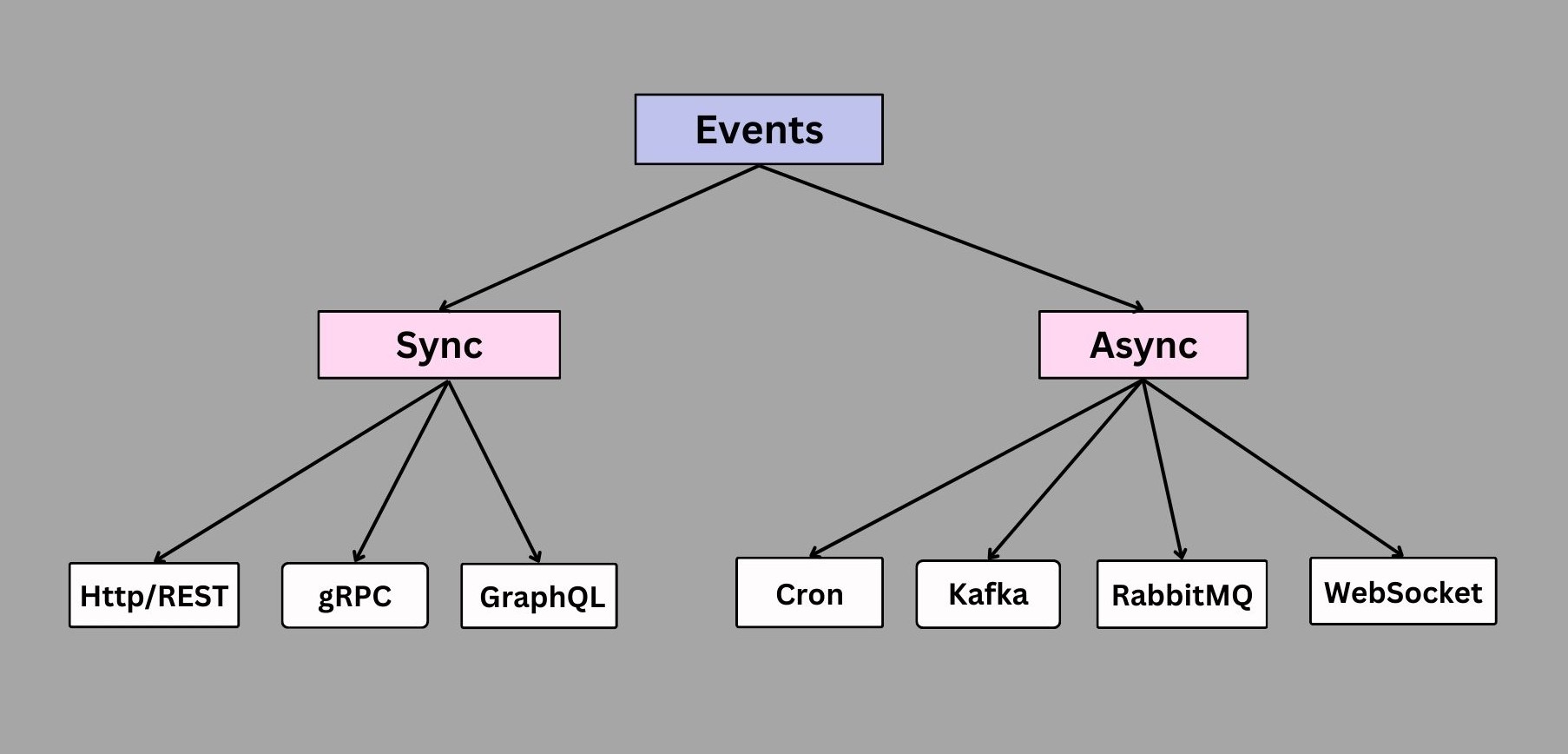Event types
Based on how processing is handled ,events can be classified into two types: synchronous (sync) and asynchronous (async) events, each suited for various protocols.

Synchronous events are typically associated with
HTTP/REST protocol:Express can also handle asynchronous operations, the basic request-response cycle is synchronous.gRPC:gRPC is a framework for building remote procedure call (RPC) systems. If you're using the typical request-response pattern, it can be thought of as synchronous.GraphQL:Most commonly, GraphQL is used for synchronous communication, but it can handle asynchronous operations when needed.
Asynchronous events, on the other hand, are exemplified by
Cron jobs:Cron jobs are asynchronous because they don't execute immediately when you create or schedule them.Kafka:Apache Kafka is an event streaming platform. It's designed for asynchronous, real-time data streaming.RabbitMQ:RabbitMQ is a message broker that allows asynchronous communication between distributed systems.WebSocket communication:WebSockets provide full-duplex communication channels over a single TCP connection. They are inherently asynchronous, allowing real-time bidirectional communication between clients and servers.
You can also create custom events like
Salesforce:Salesforce UI or synchronous API calls provide immediate feedback, many of the underlying processes that handle data processing and automation are performedasynchronouslyfor scalability and efficiency.
note
You can refer Salesforce plugin which we have in V1. We have bounty on implementing plugins for V2.
S3:Amazon S3 provides real-time access to stored objects and can be used for synchronous operations like serving web content, its internal processes and features are optimized forasynchronous.Google Pub/Sub:Google Cloud Pub/Sub enables real-time messaging with synchronous operations for immediate communication. Its architecture also supportsasynchronousmessaging, ensuring scalability and efficiency. You can use Google pub/sub to access events like new email on gmail.Amazon SQS::Amazon SQS is a fully managed message queuing service designed for both synchronous and asynchronous operations. It offers immediate message processing while optimizing for scalability throughasynchronoushandling.
To learn more about Schema Driven Development and Events in Godspeed, please watch the video provided below…